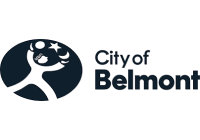City of Belmont
Local workers - Field of qualification - All industries
Field of Qualification presents the primary field of study for the highest qualification the person has received. While this is likely to have some relationship to the current occupation, this is not necessarily the case.
The field of study relates to a number of factors, such as:
- The age of the workforce;
- The type of qualification required to enter an industry;
- The availability of jobs related to fields of qualification in the City of Belmont;
- The types of occupations which are available in an area or industry.
The fields of qualification held by local workers in a particular industry are likely to show the type of skills required in that industry. Large numbers of a particular field of qualification in an industry may indicate that it is a pre-requisite for that industry. The presence of fields of qualification outside the main range of qualifications used in that industry may indicate that the industry values employees of a broad educational background, or that people haven't been able to find employment in their chosen field.
Field of Qualification information should be looked at in conjunction with Level of qualification and Occupation data for a clearer picture of the skills available for the local workers in the City of Belmont.
Data source
Australian Bureau of Statistics (ABS) – Census 2016 & 2021 – by place of work
Current industry:
Current benchmark:
Sex:
| Local workers field of qualification - Summary | |||||||||
|---|---|---|---|---|---|---|---|---|---|
| City of Belmont - All industries | 2021 | 2016 | Change | ||||||
| Field of qualification (Click rows to view sub-categories) | Number | % | Western Australia | Number | % | Western Australia | 2016 - 2021 | ||
| Natural and Physical Sciences | 1,010 | 2.19 | 2.66 | 748 | 1.94 | 2.47 | +262 | ||
| Information Technology | 1,361 | 2.95 | 2.06 | 854 | 2.22 | 1.79 | +507 | ||
| Engineering and Related Technologies | 9,411 | 20.46 | 13.74 | 7,609 | 19.81 | 14.41 | +1,802 | ||
| Architecture and Building | 1,191 | 2.58 | 3.96 | 1,167 | 3.03 | 4.34 | +24 | ||
| Agriculture, Environmental and Related Studies | 451 | 0.98 | 1.58 | 413 | 1.07 | 1.57 | +38 | ||
| Health | 2,458 | 5.34 | 8.45 | 1,621 | 4.22 | 7.48 | +837 | ||
| Education | 1,435 | 3.12 | 6.01 | 1,117 | 2.90 | 5.72 | +318 | ||
| Management and Commerce | 7,443 | 16.18 | 13.88 | 5,848 | 15.22 | 12.92 | +1,595 | ||
| Society and Culture | 2,870 | 6.24 | 8.15 | 2,033 | 5.29 | 7.23 | +837 | ||
| Creative Arts | 989 | 2.15 | 2.45 | 713 | 1.85 | 2.11 | +276 | ||
| Food, Hospitality and Personal Services | 1,611 | 3.50 | 3.88 | 1,360 | 3.54 | 3.72 | +251 | ||
| Mixed Field Programmes | 43 | 0.09 | 0.08 | 47 | 0.12 | 0.10 | -4 | ||
| Not stated or inadequately described | 1,446 | 3.14 | 2.90 | 1,006 | 2.61 | 2.49 | +440 | ||
| No qualification | 14,272 | 31.03 | 30.14 | 13,866 | 36.10 | 33.59 | +406 | ||
| Total Persons | 45,991 | 100.00 | 100.00 | 38,402 | 100.00 | 100.00 | +7,589 | ||
Source: Australian Bureau of Statistics, Census of Population and Housing 2016 and 2021. Compiled and presented by .id (informed decisions) | |||||||||


Dominant groups
Analysis of the fields of qualifications of the All industries shows that the three largest fields of qualification were:
- Engineering and Related Technologies (9,411 people or 20.5%)
- Management and Commerce (7,443 people or 16.2%)
- Society and Culture (2,870 people or 6.2%)
In combination these three fields accounted for 19,724 people in total or42.9% of All industries.
In comparison, Western Australia employed 13.7% in Engineering and Related Technologies; 13.9% in Management and Commerce and 8.2% in Society and Culture.
The major differences between the fields of qualifications of the workforce in City of Belmont and Western Australia were:
- A larger percentage of local workers qualified in the field of Engineering and Related Technologies (20.5% compared to 13.7%)
- A smaller percentage of local workers qualified in the field of Health (5.3% compared to 8.5%)
- A smaller percentage of local workers qualified in the field of Education (3.1% compared to 6.0%)
- A larger percentage of local workers qualified in the field of Management and Commerce (16.2% compared to 13.9%)
Emerging groups
The largest changes in fields of qualifications of the total workforce in City of Belmont between 2016 and 2021 were:
- Engineering and Related Technologies (+1,802.00 local workers)
- Management and Commerce (+1,595.00 local workers)
- Society and Culture (+837.00 local workers)
- Health (+837.00 local workers)
